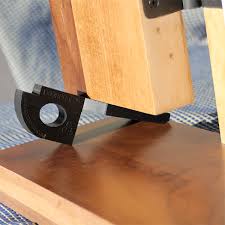A sheet metal door is commonly used in industrial and commercial settings because it is durable, strong, and relatively low cost. It can be used for a variety of purposes, including security, fire protection and many more. Sheet metal doors have a variety of uses and are commonly found in commercial and industrial settings. They are often used as exterior doors for warehouses, factories, and other industrial buildings because they are durable and can withstand harsh weather conditions. Sheet metal doors can also be used as interior doors for offices, storage rooms, and other areas where security and privacy are important.
In addition to their durability and security features, sheet metal doors can be customized to meet specific design requirements. They can be painted or coated to match the surrounding decor, and they can be equipped with various hardware such as locks, handles, and hinges to ensure proper functionality. Overall, sheet metal doors are a versatile and reliable choice for a wide range of applications. In this article, we will let you complete details about sheet metal door rust its causes, and solutions.
What is sheet metal door rust?
Rust is a common problem that affects sheet metal doors, and it can compromise the integrity and appearance of the doors. Sheet metal doors can rust over time due to exposure to moisture and air. This can happen especially if the door is located in a humid or damp environment. Rust can weaken the metal and cause the door to deteriorate, compromising its functionality and overall appearance. Regular maintenance and preventative measures can help extend the lifespan of sheet metal doors and prevent rust from becoming a major issue.
Causes of sheet metal door rust
Sheet metal doors are made of steel, which is susceptible to rust. Rust occurs when iron in the steel reacts with oxygen in the air and moisture. Several factors can contribute to sheet metal door rust, including:
- Moisture is the primary cause of rust. When sheet metal doors are exposed to moisture, it creates a perfect environment for rust to form.
- Neglecting to maintain sheet metal doors can also lead to rust. Regular cleaning, painting, and inspections can help prevent rust from forming.
- Environmental factors, such as saltwater, acid rain, and industrial pollution, can accelerate rust formation on sheet metal doors.
Preventing sheet metal door rust
Prevention is key when it comes to avoiding sheet metal door rust. Here are some tips to follow.
- Regular cleaning removes dirt and debris from sheet metal doors, preventing moisture from accumulating on the surface.
- Applying a coat of paint or another protective coating8o to sheet metal doors can prevent rust from forming by creating a barrier between the metal and the environment.
- Regular inspections can help identify any signs of rust formation early on, allowing for quick treatment and prevention of further damage.
Treatment options for sheet metal door rust
If rust has already formed on your sheet metal doors, there are several treatment options available. The best treatment option will depend on the severity of the rust and the condition of the door. Here are some of the most effective tips and treatment options.
Chemical Treatment
Chemical treatments, such as rust converters, can be applied to the rusted surface to convert the rust into a stable compound that can be painted over.
Replacement
In severe cases where the rust has compromised the integrity of the door, it may be necessary to replace the door entirely.
Top benefits of sheet metal doors
Sheet metal doors are a popular choice for many buildings, including residential, commercial, and industrial settings, for a variety of reasons. Here are some of the benefits of using sheet metal doors:
- Sheet metal doors are known for their durability and strength. They are resistant to wear and tear, which makes them a long-lasting solution for any building.
- Sheet metal doors provide an extra layer of security to any building. They are strong and difficult to break into, which makes them an excellent choice for homes, offices, and other commercial buildings.
- Sheet metal doors are also fire-resistant. They can withstand high temperatures and prevent fire from spreading to other areas of the building.
- Sheet metal doors are resistant to different weather conditions such as wind, rain, and snow. They can withstand extreme temperatures and prevent water from entering the building.
- Sheet metal doors require very little maintenance. They do not rust easily and can be cleaned easily with soap and water.
- Sheet metal doors come in different styles and designs, which makes them an excellent choice for enhancing the aesthetics of a building.
- Sheet metal doors are also energy-efficient. They can keep the indoor temperature stable, which reduces the need for heating and cooling systems.
Final words
Sheet metal door rust is a common problem that can compromise the integrity and appearance of your doors. Preventing rust formation through regular cleaning, painting, and inspections is the best way to avoid costly repairs and replacements. If rust has already formed, treatment options such as sandblasting, chemical treatment, or replacement can help restore the door to its original condition. By taking preventative measures and addressing rust formation promptly, you can ensure the longevity and reliability of your sheet metal doors.














